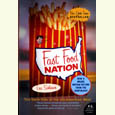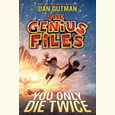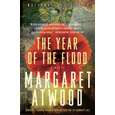River Magic
River Jordan talks with Chapter 16 about her multifaceted literary career
September 2, 2010 Nashville writer River Jordan is a literary polymath—she’s a playwright, an essayist, and a novelist with four books under her belt—and her range and ambition are remarkable. Her novels all have a kind of dreamy Southern mysticism: the newest, hitting shelves next week, The Miracle of Mercy Land, tells the story of a young editorial assistant at a Depression-era newspaper in South Alabama who’s privy to the discovery of a magical book. But her book of “recollections,” called The Deep Down Dirty South, features stories about people who are “tough as nails, terrible in their mightiness—downright frightful survivors of a hard life.” Jordan, says Rick Bragg, “makes you care about the people she writes about, even the ones you might not like, but more than that, she makes you see them.”
In the midst of all this writing, Jordan somehow also finds time to produce and host a radio show about books: Clearstory Radio airs Friday mornings at 9 a.m. on WRFN, 107.1 FM, in Nashville. As Jordan finishes the manuscript of her forthcoming nonfiction book, Praying for Strangers (due in April 2011), and prepares to launch the The Miracle of Mercy Land next week, Chapter 16 asked the multi-talented author just how she manages to do it all:
Chapter 16: You spent over a decade as a playwright. Can you compare the feeling of watching the performance of one of your plays (and watching the audience respond to your work) to the relatively isolated experience of writing a novel and sending it forth into the world?
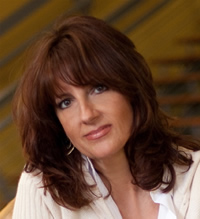 Jordan: The magic of the theatre is something amazing and special. It’s a very collective, shared art form. The playwright is just a part of the beautiful process, along with the actors, the director, the lightning people, and stage designers. Writing a novel is an isolated experience; no matter how much you may want to talk about the novel, or workshop it with writing groups, as a novelist you must return to the empty page alone and close the door behind you. But when you love a great story, it doesn’t matter the shape it takes; the breathless anticipation of hoping people share that love … . Those jitters remain the same.
Jordan: The magic of the theatre is something amazing and special. It’s a very collective, shared art form. The playwright is just a part of the beautiful process, along with the actors, the director, the lightning people, and stage designers. Writing a novel is an isolated experience; no matter how much you may want to talk about the novel, or workshop it with writing groups, as a novelist you must return to the empty page alone and close the door behind you. But when you love a great story, it doesn’t matter the shape it takes; the breathless anticipation of hoping people share that love … . Those jitters remain the same.
Chapter 16: What inspired you to make the switch from writing plays to writing novels, and have you altered your writing process to accommodate the particular demands of fiction?
Jordan: I only signed up for a playwriting class in college because I simply wanted to improve my dialogue for my novel-writing aspirations. I had written short stories for years in school but never attempted the long form. Then I fell in love with the theater and the group of people I was working with. Life called us to different parts of the globe then, and some of us continued in theatre, while some of us turned our attention more fully to the printed page. I think our writing goals are still the same: to create original works worthy of a reader’s time and to tell the truth the way we see it.
Chapter 16: Your latest novel, The Miracle of Mercy Land, describes a fantastic series of events in a realistic setting; its plot and characters are both earthly and supernatural. Did you deliberately set out to write a magical-realist Southern novel, or did the plot and style of the book evolve on their own?
Jordan: I have tried to just write a straight Southern novel with none of the magical realism, but something weird always starts happening. It reminds me of the scene in 100 Years of Solitude when it begins to rain flower petals and continues to do so for three days. That’s what happens when I’m writing. Suddenly something strange begins to sneak in, a wisp of smoke, a flash of light, a mysterious book. I’ve learned to realize that I’m there for the ride. It’s like being an engineer on a train—yes, I’m running that baby, but sometimes the tracks suddenly disappear into a tunnel or through a strange wood, and I just hold on until I make it out to the other side.
Chapter 16: Can you tell us a bit about your show, Clearstory Radio—how it began, what you try to accomplish with your broadcasts, and what you have gotten out of this remarkable and generous project?
Jordan: The show actually began about three years ago, originally under the title Backstory, but eventually the title changed to encapsulate more of what the show was about. I do have a lot of Southern authors on because I meet them on panels when I am presenting or have admired their work for years. The show promotes books, authors, book festivals, a bit of travel news (like where to hide to write the perfect story), and the story in all of us. It’s quite a celebration. And for the fun of it I toss in some great songs—everything from Frank Sinatra to The Rolling Stones and new bands like Arcade Fire.
Chapter 16: What, to your mind, is the most gratifying aspect of the multifaceted, multi-media artistic life you’ve successfully created?
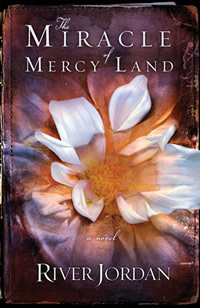 Jordan: You know, it is in some ways so sloppy, messy, wild. I guess I’ve just kept at it, like riding a wild bull or something, so I look around and realize, “Oh, this is my life.” To someone who longs to get published, it could look a little glamorous on some days, but if you realize I’ve had to pack in a hurry for a trip after not doing laundry, have literally laid my laundry out in the backseat to dry as I’m whipping up the road to get to a speaking engagement while eating tuna salad out of the can to save time, the life is short on glamour and long on work, work, work. The greatest satisfaction is when I get personal notes from readers telling me how much a story or character has touched them, how it has in some way affected them deeply, or made their lives richer. That’s where the success lies for me.
Jordan: You know, it is in some ways so sloppy, messy, wild. I guess I’ve just kept at it, like riding a wild bull or something, so I look around and realize, “Oh, this is my life.” To someone who longs to get published, it could look a little glamorous on some days, but if you realize I’ve had to pack in a hurry for a trip after not doing laundry, have literally laid my laundry out in the backseat to dry as I’m whipping up the road to get to a speaking engagement while eating tuna salad out of the can to save time, the life is short on glamour and long on work, work, work. The greatest satisfaction is when I get personal notes from readers telling me how much a story or character has touched them, how it has in some way affected them deeply, or made their lives richer. That’s where the success lies for me.
Chapter 16: Who are your favorite authors writing today? And who are your lifelong literary influences and inspirations?
Jordan: This is such a tough question for me because I have a huge list of favorite authors who are all dear, valuable friends, many who live in Tennessee now. That list would take up pages. So I won’t do that; [instead] I’m going to tell you about one new author I’ve read that I’ve never met: Markus Zusak, author of The Book Thief. What an original voice, beautiful prose, and heartbreaking truth. My lifelong influences? To be honest, even though my parents once read that rascal Mark Twain aloud to me every night, my truest influences and inspirations were those Southern storytellers in my family, talking on the porch into the night hours. I listened to the cadence of their words and soaked up their passion for the simple things in life.
Chapter 16: Your next book, Praying for Strangers, describes the astonishing results of a New Year’s resolution you made while coping with the anxiety that came from having two sons deployed to war zones. Simply put, you decided to pray for a stranger every day. Can you tell us a bit more without giving too much away?
Jordan: I never meant for it to become a book. The only person I told about the resolution initially was my husband. I also had never planned on telling people that they were my strangers—I was just going to say a silent prayer. But then something happened a few weeks into the year where I met a woman in a bus stop and felt I should tell her she was my special stranger that day. Her amazing response is what led me to telling others, and the stories of those encounters are what will be in the book. I would come home and tell my husband, “You won’t believe what happened today.” He was the one who kept saying, “Are you writing these down? You need to be writing these stories down!” So I did. It’s also something I continue to do. I had planned on giving up that practice at the end of the year but realized I couldn’t so easily drop the habit.
Chapter 16: Any advice for young writers just starting out?
Jordan: Embrace the process. Accept the discipline. Find a great mentor or study great works and underline your favorite passages. Don’t get disappointed if you don’t receive instant recognition and success. Life really is a journey, and I don’t think that is anywhere more obvious than when visiting with some of the authors I’ve come to know. They’ve all had their ups and downs, heartbreaks and disappointments. For some, the writing life has taken years of serious dedication, failures, and restarts before it begins to have shadows of the success they expected in the early years. Time makes those successes so much sweeter in the end. Of course, if you write a knockout bestseller right out of the gates that gets made into an award-winning film before the ink dries on the page—enjoy every minute of it, laugh your way to the bank, count your blessings, and give someone else along the way a little recognition and a hand up.
River Jordan will read from The Miracle of Mercy Land at Davis-Kidd Booksellers in Nashville on September 7 at 7 p.m.

